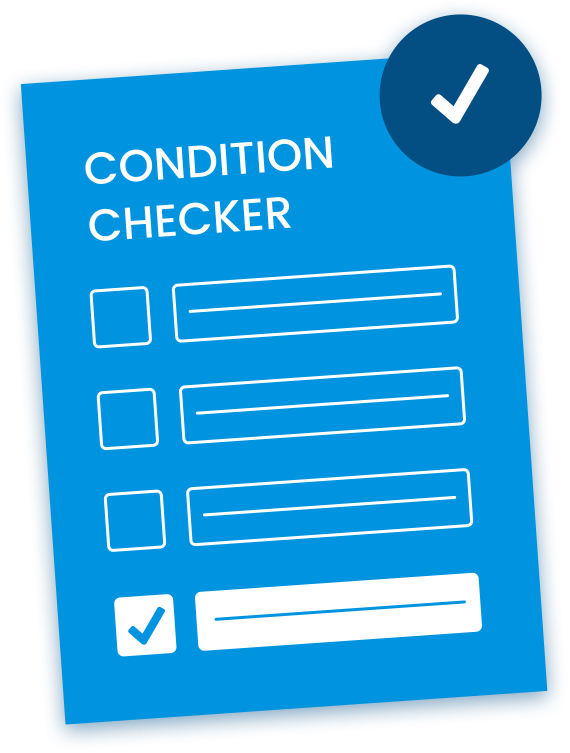Radiculitis
Find out which possible conditions you may be suffering from by trying our 2-min Guided Pain Assessment Form!





Radiculitis is a term used to describe the symptoms felt when a nerve is pinched, irritated, compressed, or inflamed. Most commonly, radiculitis refers to nerves in the lower back or the neck. The pain from radiculitis is felt because of pressure placed on the nerve root. It can result in moderate to severe pain and can radiate down your legs from the spine. In addition to the pain, radiculitis can also cause numbness, tingling, or muscle weakness, often making it difficult to tell the origin of the pain itself.
If you or a loved one are experiencing pain related to radiculitis, reaching out to our compassionate patient advocates at NJ Spine & Orthopedic can help you get the treatment and care you need. We are here to help answer any questions you may have about your treatment options as well.
Radiculitis pain can come from a number of sources. Some of the most common causes of radiculitis pain are:
There are some health factors that can increase the risk of spinal problems as well, including aging, obesity, and smoking.

Find your condition with our 2-minute Condition Checker.
Though radiculitis is actually a symptom of radiculopathy, the symptoms are similar to those of a pinched nerve. Initially, you may start to feel tingling or pain that radiates down your leg or arm. The sensation may also include numbness or the feeling of pins and needles. You may also feel a tingling that follows the nerve path down your extremities. As the compression of the nerve continues, you may feel weakness in your muscles or slowed reflexes.
Although radiculitis is the same type of pain, it is usually categorized by the location of its origin. The three basic types are:
This is where the nerve roots in the upper, cervical portion of the spine are compressed. The pain from cervical radiculitis will generally be felt in the arms, chest, neck, or shoulders. It can also cause numbness in your fingers or weakness in your arms and chest.
This is describing the compression of the nerve roots in the thoracic area of the spine. You may feel pain in the chest area accompanied by numbness, tightness, or tingling in the chest area. Sometimes, thoracic radiculitis has similar symptoms to cardiac issues, so it should never be taken lightly.
Lumbar radiculitis describes the lower portion of the spine. It is most commonly referred to as sciatica, a radicular pain that radiates from the spine to the lower back and frequently down through the muscles of the hips or buttocks. This severe pain can travel down the thigh, calf, and foot. Herniated discs are often the cause, and the pain can be intense, limiting normal activity.
Radiculitis diagnosis always begins with a medical and physical examination by your doctor. Be sure to tell your doctor about any unusual activity you have been involved in, when the symptoms started, and the length of time that you have been experiencing them. If you sustained any injury that could have contributed to your symptoms, your physician should be made aware of that as well.
Your provider may request an X-ray, MRI, or CT scan to confirm the diagnosis. This also helps the doctor locate the nerves that are affected. If there is an indication of nerve damage, your provider may order an EMG or electromyogram that tests the nerve function in the affected area.

Discover which treatment options are right for you with our Treatment Finder.
There are many options for treatment for radiculitis. The treatment option that is right for you will depend on the severity of your pain and the amount of time that you have had it. There are many non-surgical treatments for radiculitis pain that can offer some relief as well.
Your doctor may recommend over-the-counter pain relievers, such as NSAIDs or naproxen. You may also be prescribed medication to help alleviate the pain, such as prescription pain medications and anti-inflammatory drugs, muscle relaxants, and medication developed specifically for the treatment of nerve pain.
The use of massage therapy, cryotherapy, or hot and cold therapy can help to relieve inflammation, thus, reduce pain. Physical therapists may be useful in helping you with specific exercises that will stretch your muscles reducing pressure on compressed nerves. Sometimes, you may also seek chiropractic treatment as a form of therapy to relieve pain.
Epidural steroid injections and nerve block injections have been helpful in reducing pain. They are injected into the area where the nerve is compressed to block the pain from the specific nerves. They give immediate relief and have effects that can be long-lasting as well.
Our staff of orthopedic surgeons offers many treatment options if non-surgical relief is not working for you or if your pain is severe. Our minimally-invasive surgical techniques offer long-lasting results, faster recovery, and less pain and complications than traditional surgical techniques. Discuss with one of our surgeons to find the answer for eliminating your radiculitis pain.
At NJ Spine & Orthopedic, we put the needs of our patients first. We offer the latest in technology and innovation to provide you with the best care possible. Our Concierge Team can also help you obtain any necessary medical records and make sure everything else is in line so your appointment goes as smoothly as possible.
Don’t suffer from radiculitis pain any longer. Call us today at (866) 553-0612 or fill out our online form to schedule an appointment for your free consultation.

Determine your eligibility with our Candidacy Verification.
CONTACT
Phone: 855.586.2615
Current Clients: 855.706.1011
NJ Spine and Orthopedic is dedicated to delivering minimally invasive laser spine surgeries to eliminate the pain, discomfort, and dysfunction of numerous conditions of the neck and back.
OVERVIEW
LOCATIONS
Copyright © 2025 NJ Spine & Orthopedic